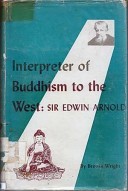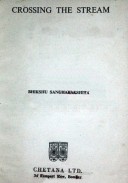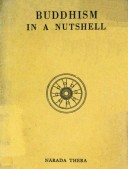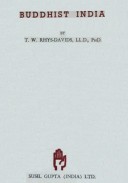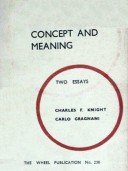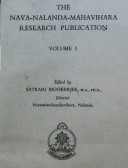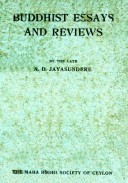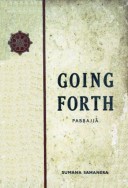Tìm Sách
Sách tiếng Anh-English >> Interpreter Of Buddhism To The West: Sir Edwin Arnold
Thông tin tra cứu
- Tên sách : Interpreter Of Buddhism To The West: Sir Edwin Arnold
- Tác giả : Book Wright
- Dịch giả :
- Ngôn ngữ : Anh
- Số trang : 187
- Nhà xuất bản : Bookman Associates, Inc, Publishers - New York
- Năm xuất bản : 1957
- Phân loại : Sách tiếng Anh-English
- MCB : 12010000006290
- OPAC :
- Tóm tắt :
INTERPRETER OF BUDDHISM TO THE WEST : Sir Edwin Arnold
By Book Wright
New York: Bookman Associates, Inc, Publishers
CONTENTS
Foreword
I. The student: 1832-1855
II. The schoolmaster: 1855-1860
III. The editor: 1860-1878
IV. The author: 1860-1878
V. The light oa Asia: 1879
VI. Buddhism for the West
VII. The patron saint of Buddhism
VIII. A Knight of Asia: 1880-1889
IX. Americaand Japan: 1889-1892
X. The light of the world
XI. Science and religion
XII. The last year: 1892-1904
Index
PUBLISHER’S NOTE
EDWIN ARNOLD was born in 1832 in Gravescend, Kent. He was educated at King’s College, London, and at University College, Oxford. In 1857, he was appointed the principal of Deccan College in Poona, India, where he came to know and respect the culture of that country,
In 1860 he joined the staff of the Daily Telegraph in London, and eventually rose to become editor-in-chief.
Arnold is best remembered, however, as one who helped spread a knowledge of Oriental culture and religion to the Western world. His most successful work was The Light of Asia, a long poem on the life of Buddha which was immensely popular in England and America. Arnold’s popular but reverent treatment of Buddhism helped to educate a generation of Victorian readers in respect for non-Christian religions. Later he made a verse translation of the Bhagavad Gita which did the same service for Hinduism.
After the death of his second wife, Arnold came to the United States, where he enjoyed great succes as a public lecturer. After 1890 he became deeply interested in Japan, and wrote several books of travel and interpretation about that country. In his last years he became paralyzed and blind; he died in 1904.
Arnold’s writings contain a consistent theology, which was typical of his age. He was a non-dogmatic liberal, ready to see merit in all religions. Although he always gave him highest loyality to Christianity, he insisted that the truth was everywhere one, and that it had been reveated in many languages besides.Hebrew and Grek. His views of human nature and destiny were optimistic in the extreme. He accepted wittingly the conclusions of Darwinism, and saw in the law of evolution a benevolent and guiding power which gave meaning and direction to human life. In his later years, he attempted to work out a synthesis combining the highest insignts of Christianity, Buddhism, and Victorian science.
 Facebook
Facebook
 Google
Google
 Google+
Google+
